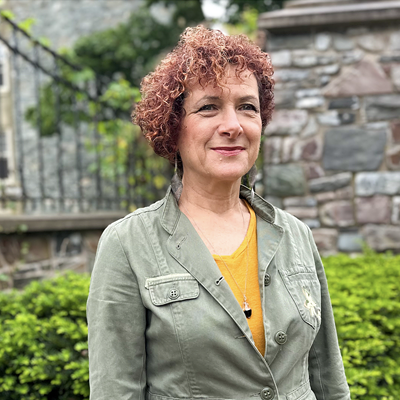Lynn Taylor knows she’s fighting an uphill battle when offers of free pizza and pop still can’t fill the room.
About 20 engineering students fidget anxiously in a large classroom at Dalhousie University’s Sexton campus. This is the biggest group to turn out for any session during Dalhousie’s Academic Integrity Week, which was held February 6-10.
Plagiarism, it seems, just isn’t a sexy topic on campus—no one even showed up for the first information session.
“We’re very concerned,” says Taylor, director of Dalhousie’s Centre for Learning and Teaching and organizer of Academic Integrity Week. “Unless students are motivated to engage in conversations about academic value and academic honesty, it’s very difficult for learning to take place.”
Like many other universities, Dalhousie is doing whatever it can to stop plagiarism.
Since 2002, Dalhousie has subscribed to the online database turnitin.com, which can be used to catch students who copy work from a classmate, a published journal or the internet. Professors take a student’s assignment, select a passage and run it through a digital database. Turnitin.com scans the document and either flags the item as something that has been copied from another source, or indicates that the work is original.
About one out of every five professors at Dalhousie uses the service, and it’s helping them catch more cheaters.
According to a 2003-04 Dalhousie Senate Disciplinary Committee report, 115 students were caught plagiarizing, an increase of 81% from the previous year. Last year, Taylor created Academic Integrity Week to raise awareness and get students thinking seriously about plagiarism.
Sean MacNeil, a second-year engineering student, worries about the sudden crackdown. He says professors are relying too much on online databases instead of exercising their own judgment.
“I see this turning into something of a witch-hunt,” MacNeil says. “It’s unfortunate...I think a lot of good students who do something totally unintentionally could catch a lot of flak over this.”
MacNeil has already fought—and won—a battle against the administration at Cape Breton University after he was falsely accused of copying an assignment. CBU uses a similar system to turnitin.com.
“You send it into turnitin.com, and it’s not a person reading this ,” he says. “Maybe it’s a phrase you’ve heard once in your life, and it’s just something you used in passing. And it comes up as part of a thesis that was written in 1812. Well, my god, it’s not something that you knew. It’s not something that you intentionally did.”
Phil O’Hara, Dalhousie’s assistant director of academic computing, swears by turnitin.com, and shows professors how to use it. He also preaches a strong message to his first-year Management students.
“I want you to know what detection tools I have,” O’Hara says. “So that you just don’t think you can get away with copying and pasting . You are here to prove that you have personal ownership ,” he says.
SMU’s Registar, Paul Dixon, says their plagiarism policy is currently under review, and there may be some changes in the works. SMU’s Faculty of Commerce subscribes to turnitin.com, but no other faculties have access yet. The University is also revisiting that issue.
Dixon says there are a few professors in other faculties who want access to the online database, but some teachers are worried about issues with intellectual property rights. That’s because the process involves running a student’s assignment through a database, which stores a copy of that work. However, according to O’Hara, omitting the student’s name and I.D. number from the document can solve that problem.
But cheating isn’t just confined to the classroom. Memorial University recently came under fire when a news report revealed that one of the university’s researchers made up data on more than one occasion. Locally, a veteran reporter at the Chronicle-Herald has been forced to take an ethics class with third-year journalism students at King’s College after being suspended from the paper for copying part of his column from the internet.
“When a small minority of our colleagues violate themselves, it gives us a much tougher job,” Taylor says.
“The students who are with us now,” she says, “went through their high school years when day after day there were reports of a lack of integrity in important societal institutions; in government, in business, even in the churches. They believe honesty and integrity are not as important as they used to be, and sometimes dishonesty gets you ahead.”










